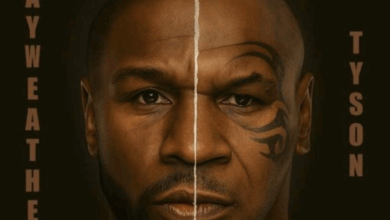After the Fall: What UFC Vegas 108 Means for Hyun Sung Park’s Future
Tatsuro Taira came out with the air of a man who had made peace with his plan days ago. He stepped forward, measured the distance, and found his target before Hyun Sung Park could plant himself. If the first round was a lesson in momentum, the second was a closing act. When Taira lifted Park clean off the canvas and planted him like a sack of potatoes, the sound of the impact had finality in it. The face crank that followed was not so much a submission attempt as it was a statement.
For Park, unbeaten until that night, the moment was sharp. Ten professional wins, nine by finish, had made him look untouchable from a distance. That distance vanished inside the UFC APEX. The lights were still bright. The cameras still watched. But the pace was different, the grip tighter, the gap for error closed to a hair’s width. It was the kind of bout that makes you think of fight fans scrolling through offers, weighing whether a BetMGM bonus code might let them take a small punt on what comes next. The fight game does not stop to let you catch your breath. It moves on, and you are expected to move with it.
The Weight of an Early Loss
A first defeat in a career can do strange things to a fighter’s head. Some treat it like a cut on the lip — painful for a few days, forgotten within a fortnight. Others carry it like a stone in the pocket, aware of its presence every time they reach for their keys. The record books will only mark a single “L” next to Park’s name, but what matters is how he wears it.
Taira did not just beat him; he interrupted his rhythm entirely. For a fighter used to controlling the dance, being pulled into another man’s tempo is more unsettling than the loss itself. This was not a drawn-out war where Park could point to a single mistake in round four. This was decisive. That kind of defeat does not allow for easy self-deception.
Lessons Taken, Not Just Learned
The path forward now depends on what Park chooses to take from this. He knows the sting of being dropped early. He knows the helplessness of being lifted and slammed in front of the world. And he knows that once you are caught in a submission you cannot escape, there is a silence that creeps in just before the tap — the kind of silence that makes fighters review the steps that brought them there.
In that silence are lessons about posture, guard, and patience. A first main event teaches you about the noise outside the cage as much as the fight inside it. The interviews. The expectation. The way people ask you the same question in twenty different ways. All of that can seep in and take up space you thought was reserved for focus.
Finding the Right Fights
Park’s next move will be to choose opponents that test him without breaking him. Matchmaking after a loss is part science, part art. You do not want a soft touch that teaches you nothing, but you also do not want to walk into another stylistic nightmare. His camp will study the tape, look for holes, and map out the next 12 months like a chessboard.
In this phase, the aim is to rebuild without losing the edge that made him exciting in the first place. Park’s strength has always been his finishing instinct — the ability to smell the blood in the water and close the distance before the other man realises the danger. That instinct needs to be sharpened, not dulled by overthinking.
Mindset After the Setback
The mental side is just as critical. Fighters who bounce back tend to treat a loss as data rather than a disaster. The ones who spiral are the ones who let a single night rewrite their story. Park has to see this as one chapter in a book that still has plenty of pages.
The sport is full of examples. Champions with early stumbles. Contenders who rebuilt brick by brick. Even in the UFC, careers are defined less by perfection and more by adaptation. The octagon rewards the fighter who can take a hard look at himself, make changes, and return with the confidence of someone who has been tested.
Staying Relevant in a Moving Division
The flyweight division is a stream that does not slow down. New names push in from the regional circuits. Veterans hang around, ready to remind the rookies that experience still counts. In a year, the rankings can shift so much that you hardly recognise the landscape. Park cannot afford to drift.
Staying active will matter. So will making each fight count. Winning is the obvious goal, but winning in a way that restores faith in his finishing power is what will put him back in the conversation. Fans remember the slam finishes and quick chokes. They want to see if the man who delivered nine straight stoppages is still in there.

